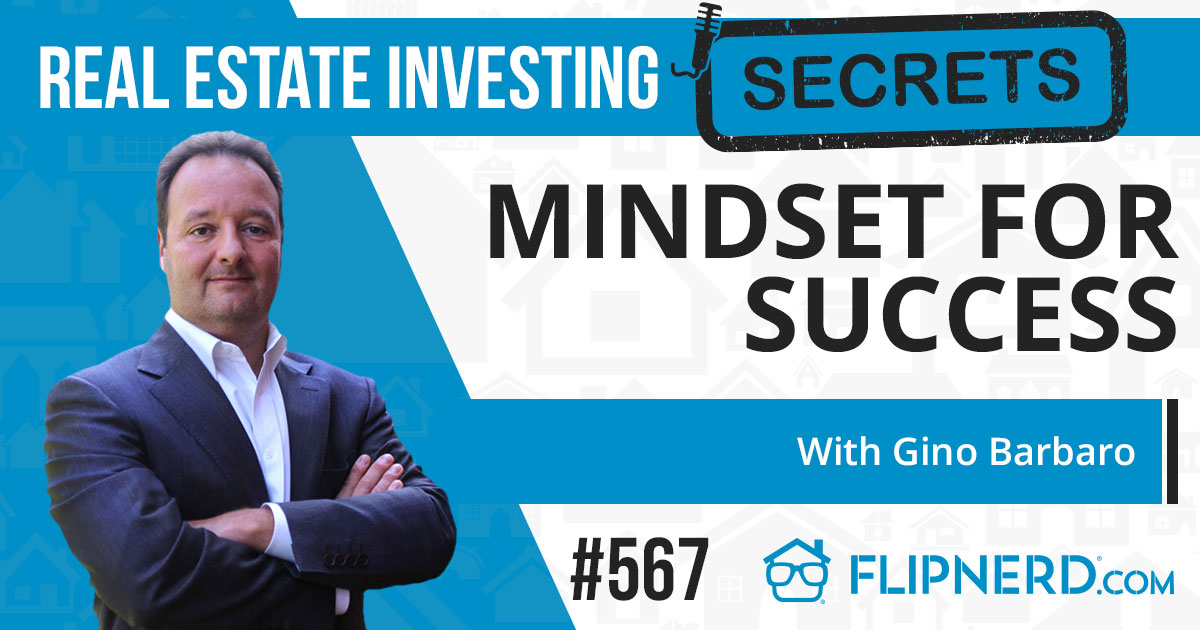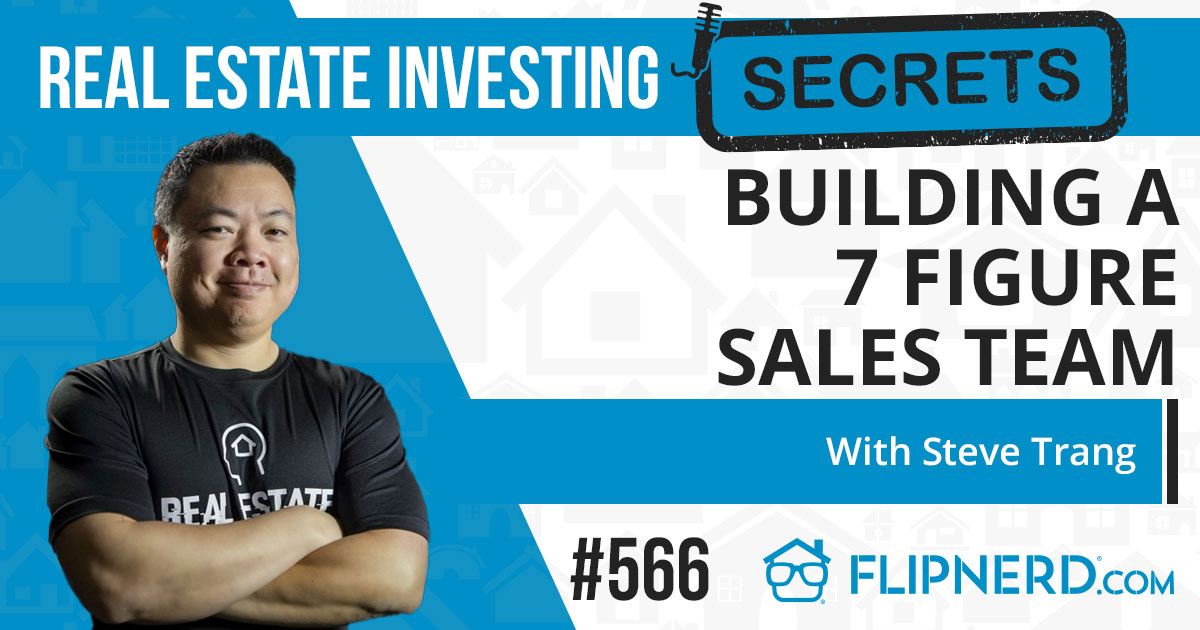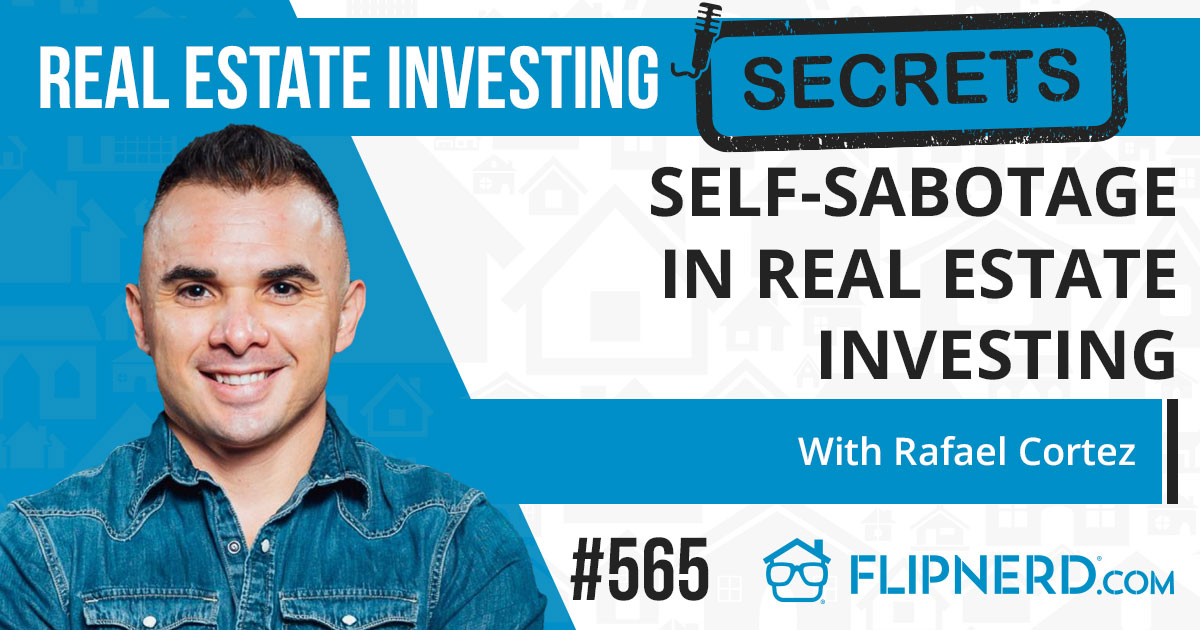Show Summary
What’s up, everybody?! Welcome back to the show! Today, I am going to share some thoughts with you about a question that came from a friend of mine. He was asking how do you self regulate? When do you say yes and when do you say no? And when you’re the boss, how do you regulate yourself? We’re going to talk more about this today. Let’s get started!
Resources and Links from this show:
- FlipNerd Investor Coaching
- Investor Fuel Real Estate Investor Mastermind
- Private FlipNerd Facebook Group: Join Us!
- The Investor Machine
Listen to the Audio Version of this Episode
FlipNerd Show Transcript:
What’s up, everybody. Hey, welcome back to the show. Today, I’m going to share some thoughts with you that came from a friend of mine, Chad Bonawitz. He was asking, “How do you self-regulate? When do you say yes and when do you say no?” And when you’re the boss, how do you regulate yourself?
Welcome to “Real Estate Investing Secrets.” We’re all looking for freedom and the opportunity to live better, more fulfilling lives. But most of us were trained our entire lives to work for someone else and chase their dreams. How can we use real estate investing as a vehicle to achieve financial freedom? My life is dedicated to answering your real estate investing questions and helping you build an investing business that allows you to change your life and the world around you and to enable you to turn your dreams of financial freedom into a reality. My name is Mike Hambright from flipnerd.com, and your questions get answered here on the “Real Estate Investing Secrets” show.
Hey guys, so I had a question from a friend of mine, actually one of our coaching students. His name’s Chad Bonawitz out of Tennessee. He asked a really good question. “How do you self-regulate? How do you say yes and no to certain things?” When you’re the boss and the buck stops with you, you’re the final decision-maker. How do you do that? How do you self-regulate? And it’s tough, right?
When you have a job, if you’ve ever had a job, somebody else’s telling you what you can or can’t do either very firmly like very rigid or kind of loosely like, here’s how you do it. You figure a few things out, but this is what you do. When you’re your own boss, it’s a lot harder, right? And that’s something that I’ve struggled with. Now, sometimes when you have a partner, like I work with my wife, she helps draw some boundaries around me, reels me in.
When you have a team, they reel you in if you’ve defined what it is you do and won’t do. And so that is how I think you self-regulate. Even if it’s just you, you have to basically still go through the process. You should always pretend, even if you’re a small company, one man, one woman shop, that’s fine. That’s how a lot of us start, right? But you still need to act like a big company.
You may have an org chart and it’s the CEO and the chief marketing officer, the chief financial officer, the chief bottle washer, whatever your name is probably on all of those when you start and that’s okay. That’s just how it is. But you should be defining those roles just as if you were outsourcing that to somebody else. As if you’re plugging somebody else in because eventually that’s the goal, right?
So, additionally, you should still plan your goals just like a big company. We use the EOS process, which my buddy Gary Harper helped with to define, which is effectively from the book “Traction,” if you follow that. It’s the entrepreneur operating system. And every week we have a level 10 meeting where we’re reviewing some reporting. We’re kind of have our finger on the pulse of our businesses, but what’s going on.
Now I have a team for that, but even if you don’t, you should still go through that process. These are the reports you review. These are the metrics that you’re tracking. These are the things that you look at to know your business working or not. And importantly, these are our goals.
Now, as part of the process, you should define longer-term goals, which will kind of say, you know, when you’re a small business, it’s really hard to kind of plan 5 or 10 years out, but you can set some high-level goals.
Then when you start to pull it in to two or three years, what do you have to accomplish two years out to hit that 5 or 10-year goal and then you back it into this year what do we have to do? This quarter what do we have to do? The quarterly goals really are the key and then of course boiling that down into monthly and even weekly.
So what I found is once I gave my team the flexibility to kind of guide me a little bit, then everything changed, right? Because I gave them the authority to kind of say, “Hey, that’s not really on task.” So, once you’ve kind of defined your goals, then everything you do should be driven by that. Now, I would encourage you to define those goals and do it in a way to where you set the bounds of what you’re going to do and what’s you’re not going to do.
And so what I found is I used to go off the reservation, hey, I’m going to go start a bowling alley or something ridiculous. Never did that but there were some ridiculous things in there. It is to basically say, “Hey, I’m a single family house investor. This is what I do.” I’m interested in multi-family and if I have some extra time, I’m going to do that but I’m going to do it with somebody that knows what they’re doing and I’m going to have a more passive role. Maybe I’m putting my own money in, maybe I’m helping raise money or something that’s not kind of a full time active role. But in my business of single family investing, I can innovate inside of that. I’m going to do some creative financing, I’m going to lean into this extra strategy a little bit more. So leave your innovation kind of inside of the bounds of what it is that you already do.
That is until you’ve built up a business that’s successful enough to where you can pull a team in and they can manage it largely without you on the day-to-day from a day-to-day standpoint. And then as an entrepreneur, the thing that I love about that is that gives you the freedom to go explore and spend more time on other things when you’re not doing everything yourself. Whereas we talk about this all the time on the show, right? Is how to scale your business to the point to where it’s not a job, it’s a business for you.
And then scale it up to the point to where they’re still guiding it. I’m not of the belief that you can build this business that you just walk away from it, it runs itself. That is very, very difficult for us. And the truth is, it’s not even really what I want. I don’t want to sit on the beach. But your goals are different. But I would say more importantly as an entrepreneur and as an opportunist, it gives you the flexibility then to go into other things and explore those a little bit and innovate some more.
So, hopefully, that helps, hope you got some value. If you did, just post down below. If you’re watching this on iTunes, Stitcher Radio, Google Play, anything like that, take a picture of the video here and just share it on social media if you got some value and leave a comment. Of course, I’d love it if you go and subscribe to us. If you haven’t already, you can go to flipnerd.com/shows to find out how to connect to us and leave a review on iTunes, Stitcher, YouTube, all those places. Of course, a flipnerd.com/shows is where we have over a thousand hours, over 1500 different shows that we’ve created over the last six years, so have a great day. See you on the next one.
Thanks for listening to today’s show. There are three ways I can help you start or grow your real estate investing business. If you’re a new investor and just getting started, the FlipNerd Investor Coaching Program is the most effective program in America. I’ve been coaching and mentoring new real estate investors for 10 years and my students have literally purchased thousands and thousands of properties. Many of them started with little to no experience at all. Our program is a paint-by-numbers program where we tell you exactly what to do week by week to make sure that you don’t get distracted on your way to results. We show you how to build a real business, not just create another job for yourself. New memberships are limited. You can learn more and apply or schedule a call with me and my team at flipnerd.com/coaching.
If you’re an experienced investor doing a minimum of 10 deals a year, up to 500 deals a year or more, or have a multimillion dollar real estate portfolio already, you should check out our powerful Investor Fuel Real Estate Investor Mastermind. Over a hundred of the nation’s leading real estate investors are members, and it’s not uncommon for our members to 2 to 5X their business just from getting around other members at Investor Fuel. At Investor Fuel, each of us are business advisors to one another’s businesses, but we don’t stop at business. We focus heavily on becoming better people and living fuller lives. If you’re looking for fuel for your business or fuel for your life, please check out investorfuel.com. Applications and interviews are required as most investors are not a fit for our community. Please learn more at investorfuel.com.
If you’re not ready for coaching or masterminds, but eager to start learning more about investing, please join our private Facebook group by visiting flipnerd.com/facebook. New members get access to free training from us right here at flipnerd.com and it’s a community to safely ask your questions. A great place to get started. Simply go to flipnerd.com/facebook to request your access today.











